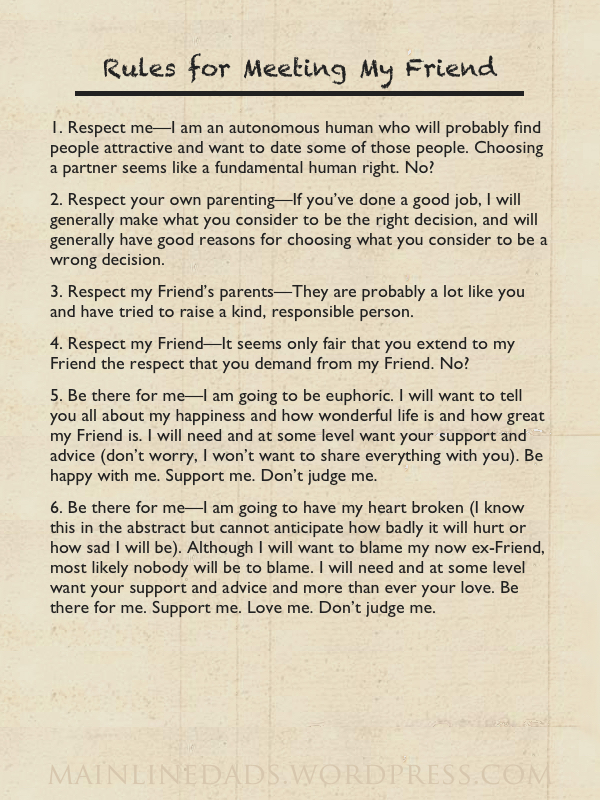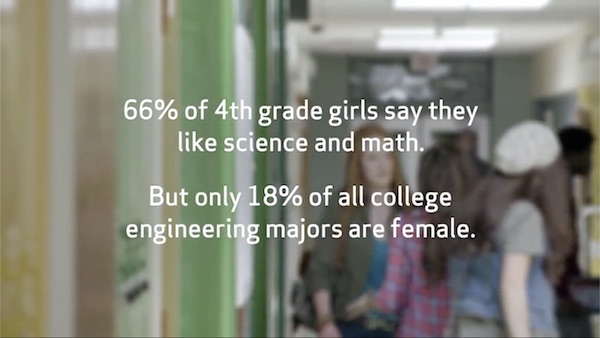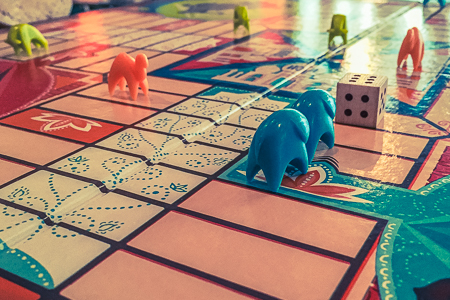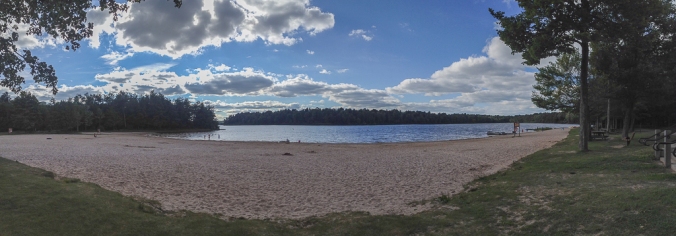The other day #1 asked me to tell the story about when Uncle H. ran across the pool without sinking. The core of the story is
Uncle H. was standing near a pool when he lost his balance (why is unclear) and teetered and lurched toward the pool. As he reached the edge of the pool, rather than simply fall in, Uncle H. ran across the pool to the other side. His legs were moving so fast, so the story goes, that he didn’t sink. When he got to the far side of the pool and stepped out, only his feet and ankles were wet.
Uncle H.’s preternatural run happened sometime in the nebulous past but lived on in each retelling at family gatherings throughout my childhood. Whenever it came up, he would chuckle in his chair while we kids would look with renewed admiration at Uncle H.
At first awed by his powers, over time I grew skeptical of the story, a skepticism aided by a couple earnest but wholly unsuccessful attempts to recreate the feat in my neighbor’s pool. My skepticism demanded an explanation, wanted the real story. What really happened that made people say Uncle H. had run across a pool? I have given up trying to imagine the actual scene that metamorphosed into Uncle H. quasi-miraculous dash across the pool. It no longer matters. Uncle H. has become inextricable from that run across the pool all those years ago, and a hundred other stories that defy verification.
So, when #1 asked, I retold the story the best I could. I tried not to embellish—does a story about thwarting basic physical laws need embellishment?—and added the caveat: “I didn’t see it happen but that’s how the story goes.” #1 never knew Uncle H. He has seen only a couple faded pictures—one with a very young me standing next to Uncle H. He has only stories of a kind person. Some of those stories are more amazing than others. For #1, Uncle H. will only ever be the composite of these stories. And so I tell each of them with the same enthusiasm.
The other day I overheard #1 telling one of his friends about something I had done when I was young—a silly, youthful exploit that included gravity, a roof, and a misplaced high jump pit. Although he took some liberties with the story, he got the basic details right. I didn’t bother reining in those liberties. His friend said: “That totally sounds like your dad.” #1 and his friend had and have no interest in verifying the story. For them, the story is real because it “sounds like” me. As I sat there listening to them, I thought: “Is this how Uncle H.’s story began?” I am becoming an alloy of stories and person; one day before long I will be just stories.
As the paragon of story telling Edward Bloom says to Josephine, bad stories get “All the facts and none of the flavor.” We are all fated to become stories. What stories will you become?





You must be logged in to post a comment.